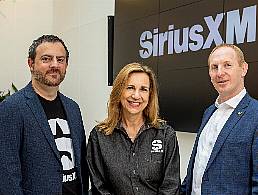Once you’ve reached the end of a job interview, the recruiter will probably ask if you have any questions for them. Always have an answer ready.
A job interview is always a bit nerve-racking but once you get to the end, the hard part is essentially over, right? Wrong.
Generally, at the end of an interview, the recruiter asks if you have any questions for them. If you panic and say no, you’ve missed a major opportunity.
Asking questions at this juncture will show your interest in the role. After all, you’re applying for a new job, probably in a new company. You should have questions.
That said, you should try to avoid asking about what’s in it for you, such as benefits and holidays. These come across as presumptuous and don’t show much interest in the role itself.
You should also make sure you do your research on the company before you head into the interview. Once you’ve decided on a list of possible questions, try and find the answer yourself. If you come up with the answer easily from the company website, steer clear of that question in the interview. It will make you seem unprepared.
Instead, opt for practical questions that will give you a better idea of what your role will be like, or general questions about the company culture.
The most common questions to ask are those about the role itself. These will show that you have a genuine interest in the job and what it entails. It also genuinely prepares you for the role, with more specific information than the job description or the overview might have provided you so far. These questions include:
What will a typical day be for me?
What would I hope to achieve in the first three months?
What kind of atypical jobs will come up throughout the year?
If you want to find out more about the company itself, you should ask about the culture, the team you’ll be working with or the long-term goals of the organisation. These questions will give you a unique insight into what it’s like to work for the company, and will also show the recruiter that long-term goals are important to you, implying that you intend to stay.
What is the company culture like here?
What kind of career progression is possible?
What is the company-wide aim for the year ahead?
Things you forgot to say
Did you give a perfect interview so far? Is there any information you left out, or any skills you feel that you could sell better, given a second chance? Use the ‘any questions’ portion of the interview to go back to one of your earlier points.
You basically have a spare sheet of paper at this point to mention any additional abilities and skills. Give them a final pitch and show just how qualified you are for the job.
The key is to not leave this section of the interview blank. Ask questions to find out more information, show your interest in the company and remind the recruiter why you are a good choice. There’s a good chance that this is the part of the interview you will be remembered for.




